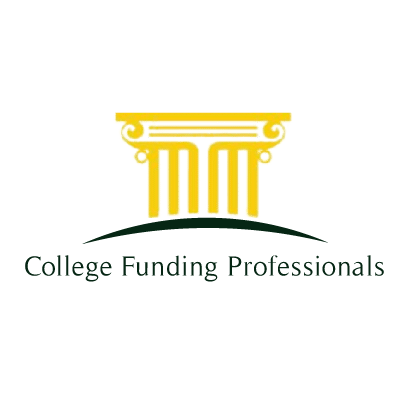If you or your child is among the millions of students seeking a degree from a college or university, then it’s important to understand the basics of filling out the FAFSA.
The FAFSA, or Free Application for Federal Student Aid, offers countless benefits. For example, federal student loans are known for their reduced interest rates, helping borrowers pay back their loans after graduation.
Additionally, if you’re interested in applying for grants or scholarships, then you may have to apply for the FAFSA, making it a crucial part of the college application process.
With the FAFSA comes a myriad of questions, however, from registration to paying back student loans. Here’s what you need to know.
How to Register for FAFSA
You may be wondering how to sign up for FAFSA. Do students or parents fill out the FAFSA? More importantly, do you have to fill out the FAFSA?
To complete your FAFSA form, you’ll need to visit the Federal Student Aid’s website. From there, you’ll be prompted to start a new form, provided this is your first time filing. There is also an option to access an existing form if you already applied.
The FAFSA is technically the student’s responsibility, but parents and guardians have a substantial part in the application process when students are considered dependents.
Parents and students have to report basic information, such as name, birth date, and social security number, if applicable. Marital status, household size, and residing state are also required questions, along with personal finances.
Is FAFSA Required?
Another popular question among parents and students is whether the FAFSA is a necessity. Since the FAFSA is a college financial aid application, students who don’t want or need assistance aren’t required to complete the FAFSA. But, as previously mentioned, the FAFSA may be a prerequisite for grants or scholarships.
It’s also important to know when to apply for FAFSA. Every year has similar dates for application: between October 1st and June 30th. However, it’s advisable to apply early and to follow dates for application, especially when funds are limited.
But do you have to pay back FAFSA? FAFSA isn’t a loan, but that doesn’t mean there’s nothing to repay.
Do I Have to Pay Back FAFSA?
Completing the FAFSA helps eligible students obtain various types of financial aid. This includes grants, federal student loans, and student employment.
A Federal Pell Grant typically does not require repayment, but FAFSA is still required to apply for these grants. Federal student loans, however, require repayment.
The Federal Work-Study (FWS) Program doesn’t require repayment either.
Is FAFSA Free to Apply For?
Another common question is if it’s free to apply for the FAFSA.
Yes, it’s free to apply for the FAFSA. Additionally, if you choose to apply for private student loans, you most likely won’t pay a fee either.
To summarize, does FAFSA reimburse you? No, as it’s just an application for financial aid. Do you pay back financial aid from FAFSA? Yes, if it’s a loan and not a grant or FWS, as FAFSA helps you obtain various types of financial aid.
Does FAFSA Deny Applications?
There is a chance that FAFSA will deny your application. This happens when applications don’t meet the program’s basic eligibility requirements.
For example, if you’re not a U.S. citizen or an eligible non-citizen, you may be denied.
Additionally, if you haven’t shown that you need financial assistance, your application may also be denied.
If this happens to you but you still need some type of financial aid, it’s best to talk to your school. You may be able to appeal your rejection for federal student aid. You can also ask what your school’s minimum requirements for financial aid are and how you can become eligible.
When Do I Get My FAFSA?
FAFSA is an application for financial aid determination. When you receive funds is up to your school. Each school has a schedule for distributing funds to students, which is why it’s important to complete your FAFSA — in its entirety — as soon as possible.
When do FAFSA awards come out? This answer depends on the schools you applied to, but they traditionally send out award letters around mid-April. These letters explain what’s included in your financial aid package.
When to Apply for Student Loans
When you apply for student loans depends on the type of loans you’re interested in taking. If you want to apply for federal student loans, then you need to complete your FAFSA, following application guidelines.
If you’re interested in private student loans, however, then you don’t need to complete the FAFSA unless you also want to apply for grants or scholarships.
As a general rule of thumb, it’s best to apply for private student loans about two months before you have to pay college tuition. This means you need to pay close attention to when your school requires tuition payment. For example, if payment is due in July, then you want to apply for private student loans no later than May.
Does FAFSA Affect Admission?
No, FAFSA does not affect admission. Schools look for students who excel in a variety of diversified areas, and financial status doesn’t affect their chances of receiving acceptance to a college or university.
Completing the FAFSA and receiving financial aid can help make your dream of earning a college degree that much more attainable. Students are also protected by various laws, ensuring they’re not discriminated against due to personal finances, amongst other things.
For example, take The Civil Rights Act of 1964. This legislation prevents discrimination in multiple areas, education being one of them.
More specifically is Title IV of the Act. This protects students in public schools and higher education.
Additionally, Title VI protects students from being discriminated against if they receive federal funds.
Considering that over 85% of students receive financial aid in one way or another, all students should feel comfortable applying for — and accessing — the FAFSA.
Filling Out The FAFSA
Although not every student has to complete the FAFSA, most do. And with this application process comes various questions. The best way to navigate the college application process is with the help of a virtual counselor.
This is where College Finding Professionals comes into play. We’re here to walk you through the entire college application process, ensuring you know what to do, and when. We streamline the admission process, answering any questions that arise, so you feel confident as you pursue a college degree.
Join our free online Facebook Group to gain access to the best college planning advice anywhere.



